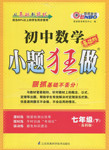题目内容
This recently-released documentary(纪录片)had some fantastic footage(镜头) in it, and a very personal look at many of the astronauts who went to the moon. Overall, that is a very exclusive(独特的) club; only about a dozen men ever did it in the history of the world and just eight or nine ever stepped foot on it. Most of them are still alive and they discuss their adventures, insights and personal feelings here.
One gets the feeling that the rest of us will never know exactly how beautiful the moon is except to take the astronauts’s words about it, because even the pictures on this DVD can’t convey that.
Since this documentary is about 100 minutes long, you get a lot of information. You also get reminded how close two of the three men who went up on that historic first walk on the moon almost didn’t get home alive.
An absence in this documentary is the most famous astronaut of them all: Neil Armstrong, the first man to step foot on the moon! Apparently, he did not want to be part of this film. One of the astronauts mentions something briefly about Armstrong being somewhat of a “recluse(隐居者)” now and it “being understandable with what he’s gone through”. From what I’ve read, a lot of people have tried to make money off him in shady ways and so now he’s withdrawn(退出) from the public spotlight.
This film, a legacy to the Apollo program and the brave men who ran it, should be in every schoolroom. It would make history more interesting to students
- 1.
What can we know from the passage?
- A.One of the astronauts talks about how beautiful the moon is
- B.Two of the three men who went to the moon lost their lives
- C.The documentary would make more students interested in history
- D.The astronauts talk about their adventures, insights and excitement
- A.
- 2.
How many astronauts first flew to the moon?
- A.1
- B.2
- C.3
- D.4
- A.
- 3.
Why was Armstrong absent from the film?
- A.Because he didn’t like to show in public
- B.Because he has been tired of astronaut’s life
- C.Because someone wanted to make money off him
- D.Because he thought what he did was nothing to mention
- A.
- 4.
What made Armstrong famous around the world?
- A.That he came back safely to the earth alive
- B.That he became an astronaut
- C.That he first stepped on the moon
- D.That he walked on the moon for 100 minutes
- A.
ACCC
试题分析:本文是篇说明文,介绍了关于登月的一部纪录片以及说明了登月第一人阿姆斯特朗没有出现在影片中的原因。
1.根据You also get reminded how close two of the three men who went up on that historic first walk on the moon almost didn’t get home alive.排除 B; 根据It would make history more interesting to students.排除 C;根据Most of them are still alive and they discuss their adventures, insights and personal feelings here.排除 D,,故选A。
2.根据You also get reminded how close two of the three men who went up on that historic first walk on the moon almost didn’t get home alive.故选C。
3. 根据From what I’ve read, a lot of people have tried to make money off him in shady ways and so now he’s withdrawn(退出) from the public spotlight.故选C。
4. 根据An absence in this documentary is the most famous astronaut of them all: Neil Armstrong, the first man to step foot on the moon! Apparently, he did not want to be part of this film.故选C。
考点:说明文阅读理解。
点评:这篇文章非常简单,先看问题,再带着问题仔细阅读短文,理解了全文内容,很容易选出正确答案。阅读注意事项:1、关注连词,分析文章逻辑结构。2、聚焦代词,明辨指代关系。3、抓住关键词语,利用平行结构、上下文(包括定义、释义、举例、对比、标点)进行判断与推理。4、了解一些构词法,从词根的特殊含义入手。
试题分析:本文是篇说明文,介绍了关于登月的一部纪录片以及说明了登月第一人阿姆斯特朗没有出现在影片中的原因。
1.根据You also get reminded how close two of the three men who went up on that historic first walk on the moon almost didn’t get home alive.排除 B; 根据It would make history more interesting to students.排除 C;根据Most of them are still alive and they discuss their adventures, insights and personal feelings here.排除 D,,故选A。
2.根据You also get reminded how close two of the three men who went up on that historic first walk on the moon almost didn’t get home alive.故选C。
3. 根据From what I’ve read, a lot of people have tried to make money off him in shady ways and so now he’s withdrawn(退出) from the public spotlight.故选C。
4. 根据An absence in this documentary is the most famous astronaut of them all: Neil Armstrong, the first man to step foot on the moon! Apparently, he did not want to be part of this film.故选C。
考点:说明文阅读理解。
点评:这篇文章非常简单,先看问题,再带着问题仔细阅读短文,理解了全文内容,很容易选出正确答案。阅读注意事项:1、关注连词,分析文章逻辑结构。2、聚焦代词,明辨指代关系。3、抓住关键词语,利用平行结构、上下文(包括定义、释义、举例、对比、标点)进行判断与推理。4、了解一些构词法,从词根的特殊含义入手。

练习册系列答案
 小题狂做系列答案
小题狂做系列答案
相关题目